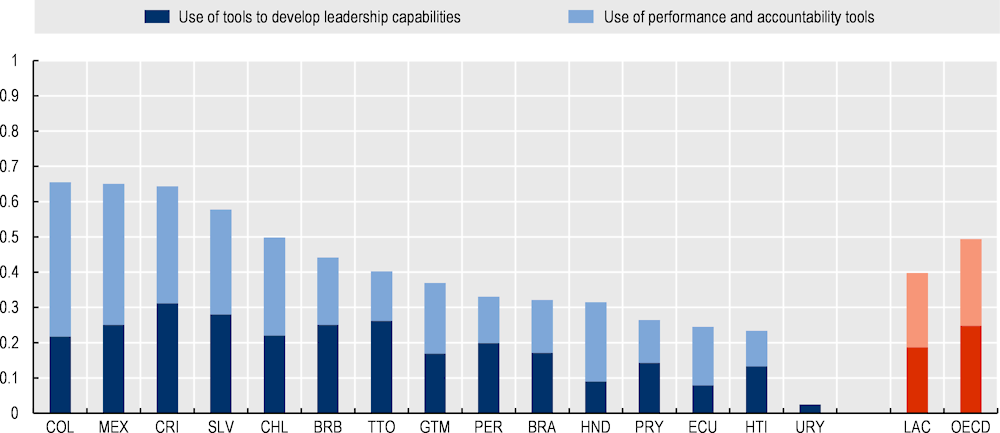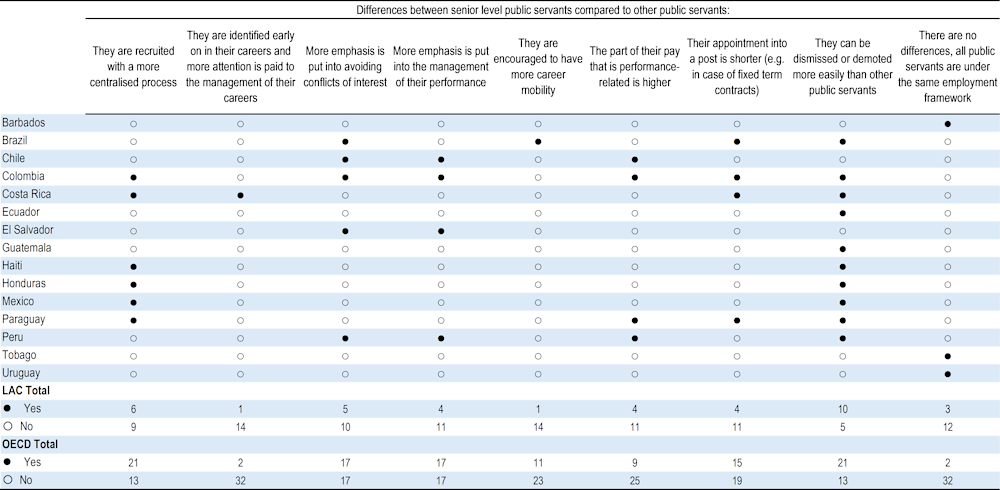Senior public management positions require individuals with strong leadership skills who can effectively solve problems and guide their organisations in line with the government’s agenda. These positions require adeptly managing the complex interaction between political dynamics and professional operations within public administrations and play a pivotal role in achieving policy outcomes. Given this demanding context, it is crucial for governments to assess and monitor senior public servants’ leadership abilities and performance and hold them accountable for fulfilling their responsibilities. It is also relevant to acknowledge the differences between senior roles and those of other public servants, which in some cases may warrant different employment frameworks.
The OECD has developed an analytical index to identify and measure two sets of policies for managing senior public servants: developing leadership capabilities, and managing performance and accountability (Gerson, 2020). Overall, the 15 surveyed Latin American and Caribbean (LAC) countries score 0.40 on average, slightly lower than the OECD average (0.49). However, LAC countries in the OECD, Chile (0.50), Colombia (0.65), Costa Rica (0.64) and Mexico (0.65), along with El Salvador (0.58), positively stand out for the use of such policies. On average, LAC countries score slightly more for their use of performance and accountability tools (0.21) than for those to develop leadership capabilities (0.19). Colombia is the top scorer (0.44) for performance and accountability tools with policies on measuring individual performance goals, collective or institutional goals and efficiency and quality performance, among others. Costa Rica scores highest in the use of tools to develop leadership capabilities (0.31), due to a well-developed competency framework for recruitment (Figure 13.5). This includes a Dictionary of Competencies of the Civil Service Regime, and performance assessments. The Costa Rican government also provides continuous professional development to its senior level public servants through the Modular Programme for Public Managers.
In some LAC countries, the employment framework for senior public servants differs in some respects from that of other public servant positions. The most common difference – in 10 of the 15 surveyed LAC countries (67%) – is that senior public servants can be dismissed or demoted more easily than other public servants, similar to OECD countries (62%). Likewise, in 40% of LAC countries, senior public servants are recruited through a more centralised process than other public servants (Table 13.2).
However, most LAC countries do not use a different framework for many aspects of managing senior public positions. In 14 of the 15 LAC countries (93%) potential senior public servants are not identified early on so that more attention can be paid to the management of their careers, nor is more career mobility encouraged (Table 13.2). Strengthening and reinforcing the employment framework can help develop a high-performing senior level public service.


